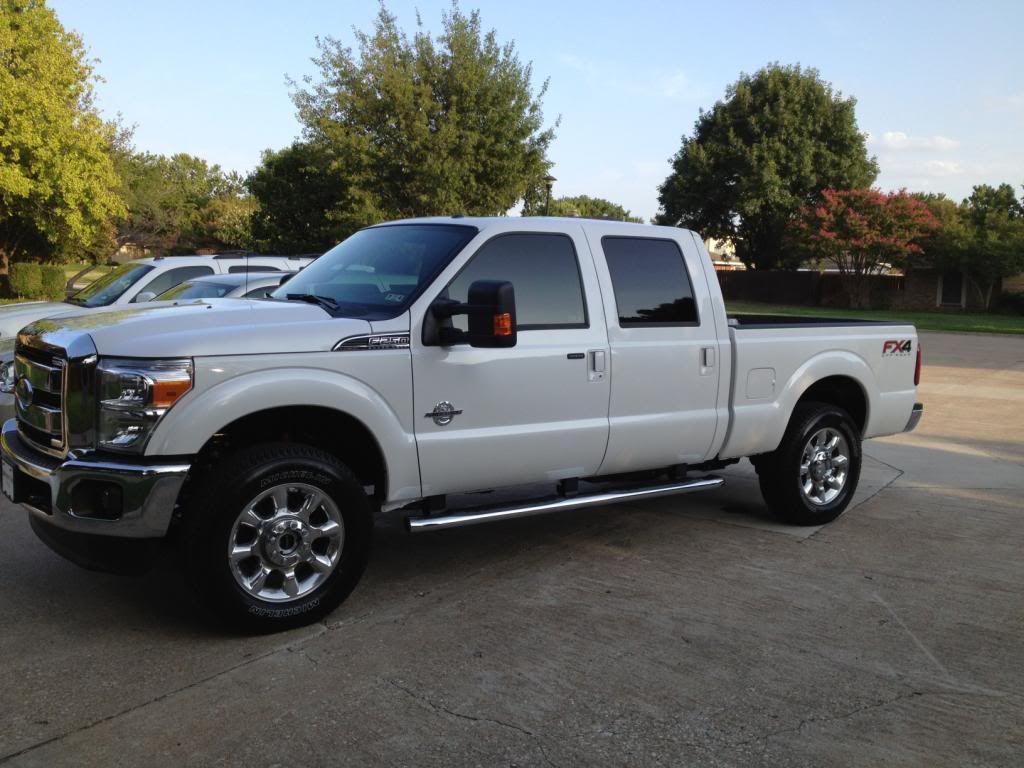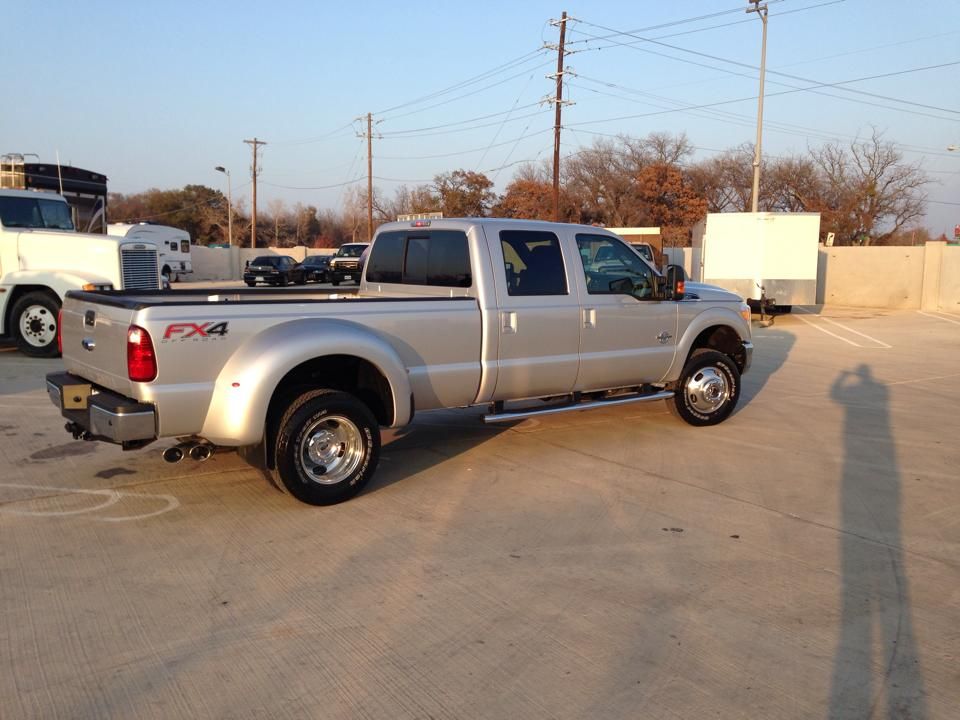LowRyter wrote:
62 mph? and you're complaining about being squirelly? how fast were your driving? The trailer tires are meant for 65.
my truck is not stock nor the suspension on my wp295. all of my reasons for the suspension and tires changes are for stronger ones so I can run higher speeds. I have made many trips on what I call long runs, loaded with the sand rail and gear in the toyhauler. right about 10k lbs loaded, crossing 3 state lines to the dunes. when the speed limit says 75 I set the cruise at 78mph , low wind of course, if it say 65 I set the cruise at 68mph. st tires are rated for 65 mph at 20% over load weight because of heat and a few other reasons. however if you go stronger or higher load rating so say 30% over or 40% you can exceed this safely imo. however you'll never get the manufacturer's to state this outright. after several years of doing so from car trailers to enclosed cargo to fifthwheel toy haulers all modd'd way better than stock with suspension! I have had no issues on good equipment. now pulling my 295 wp fifth at 78 mph the best mpg's I get is 9.3 and worst 8.5 but fight the wind and have to slow down to 62 mph, high 7's it's a trade off and my diesels have always handled it fine, I keep them on top end of course!
had a couple e mails and calls to tire manufacturer's and have a real good friend who's father worked with the engineer's at goodyear who is retired now of course.
A bit of info.
http://www.discounttire.com/dtcs/infoTrailerTireFacts.dos
Always inflate trailer tires to the maximum inflation indicated on the sidewall.
Trailer Tire Facts
Trailer Tire Applications
Trailer tires are designed for use on trailer axle positions only. They are not built to handle the loads applied to, or the traction required by, drive or steering axles.
Inflation
Always inflate trailer tires to the maximum inflation indicated on the sidewall.
Check inflation when the tires are cool and have not been exposed to the sun.
If the tires are hot to the touch from operation, add three psi to the max inflation.
Underinflation is the number one cause of trailer tire failure.
Load Carrying Capacity
All tires must be identical in size for the tires to properly manage the weight of the trailer.
The combined capacity of the tires must equal or exceed the Gross Vehicle Weight (GVW) of the axle.
The combined capacity of all of the tires should exceed the loaded trailer weight by 20 percent.
If the actual weight is not available, use the trailer GVW. If a tire fails on a tandem axle trailer, you should replace both tires on that side. The remaining tire is likely to have been subjected to excessive loading.
If the tires are replaced with tires of larger diameter, the tongue height may need to be adjusted to maintain proper weight distribution.
Speed
All "ST" tires have a maximum speed rating of 65 mph.
As heat builds up, the tire's structure starts to disintegrate and weaken.
The load carrying capacity gradually decreases as the heat and stresses generated by higher speed increases.
Time
Time and the elements weaken a trailer tire.
In approximately three years, roughly one-third of the tire's strength is gone.
Three to five years is the projected life of a normal trailer tire.
It is suggested that trailer tires be replaced after three to four years of service regardless of tread depth or tire appearance.
Mileage
Trailer tires are not designed to wear out.
The life of a trailer tire is limited by time and duty cycles.
The mileage expectation of a trailer tire is 5,000 to 12,000 miles.
Why Use An "ST" Tire
"ST" tires feature materials and construction to meet the higher load requirements and demands of trailering.
The polyester cords are bigger than they would be for a comparable "P" or "LT" tire.
The steel cords have a larger diameter and greater tensile strength to meet the additional load requirements.
"ST" tire rubber compounds contain more chemicals to resist weather and ozone cracking.
Storage
The ideal storage for trailer tires is in a cool, dark garage at maximum inflation.
Use tire covers to protect the tires from direct sunlight.
Use thin plywood sections between the tire and the pavement.
For long term storage, put the trailer on blocks to take the weight off the tires. Then lower the air pressure and cover the tires to protect them from direct sunlight.
Maintenance
Clean the tires using mild soap and water.
Do not use tire-care products containing alcohol or petroleum distillates.
Inspect the tires for any cuts, snags, bulges or punctures.
Check the inflation before towing and again before the return trip.
Keys to Avoiding Trouble
Make sure your rig is equipped with the proper tires.
Maintain the tires meticulously.
Replace trailer tires every three to five years, whether they look like they're worn out or not.
Trailer Tire Warranty
The Carlisle trailer tire warranty applies to the original purchaser for three years from the date of purchase or until the tread depth reaches 3/32".
The OE (original equipment) warranty goes into effect at the time of the trailer purchase
Sent by: Goodyear Tire & Rubber Company Consumer Relations East
Market Street Akron, OH 44316 Voice #: Fax #:
330.796.6829
Thank you for contacting our team. You don't "derate" an LT tire when
using on a trailer application. You do "derate" a Pmetric tire if you use
it on a trailer or on a truck. Reason is an LT tire is designed to operate
at max load 100% of it's life. A Pmetric is designed to operate at max
load only part of its life. Rule of thumb is to "derate" a Pmetric in this
type of application by 10%.
If you've had good luck with the Marathons on your trailer, I would
continue to use them.
Jennifer - Consumer Relations

